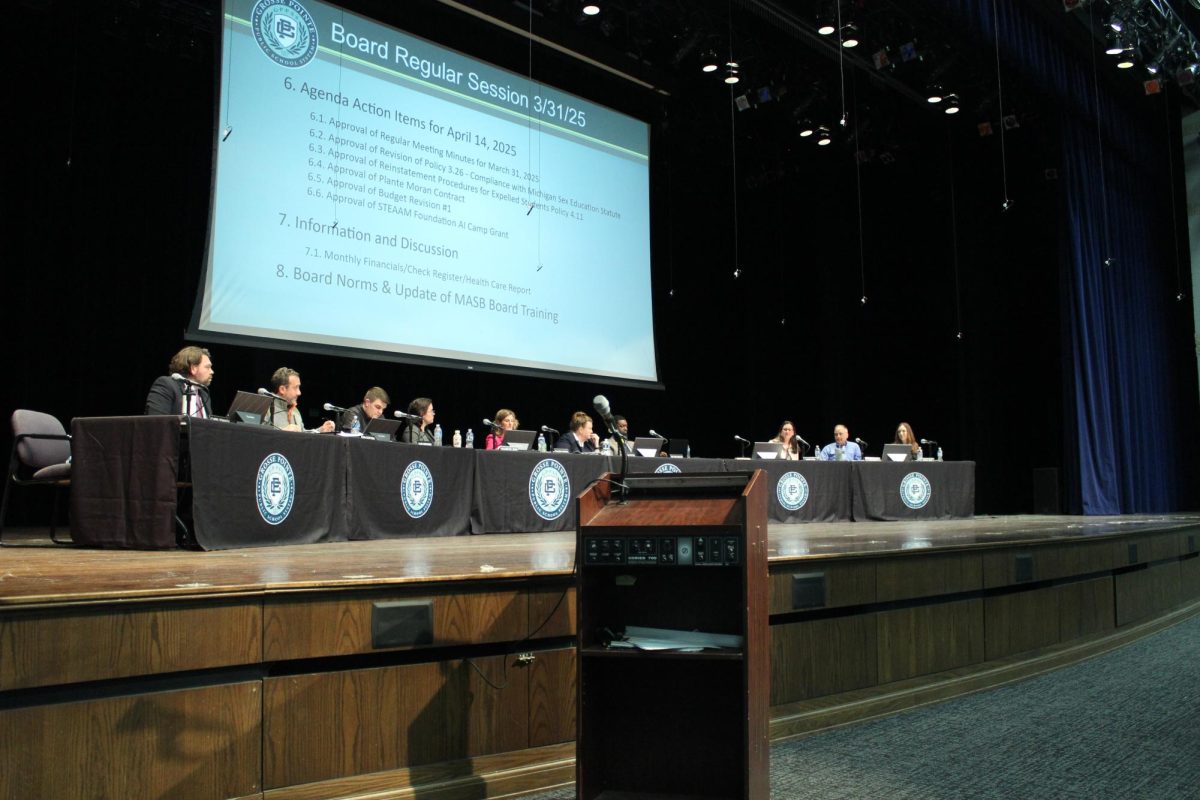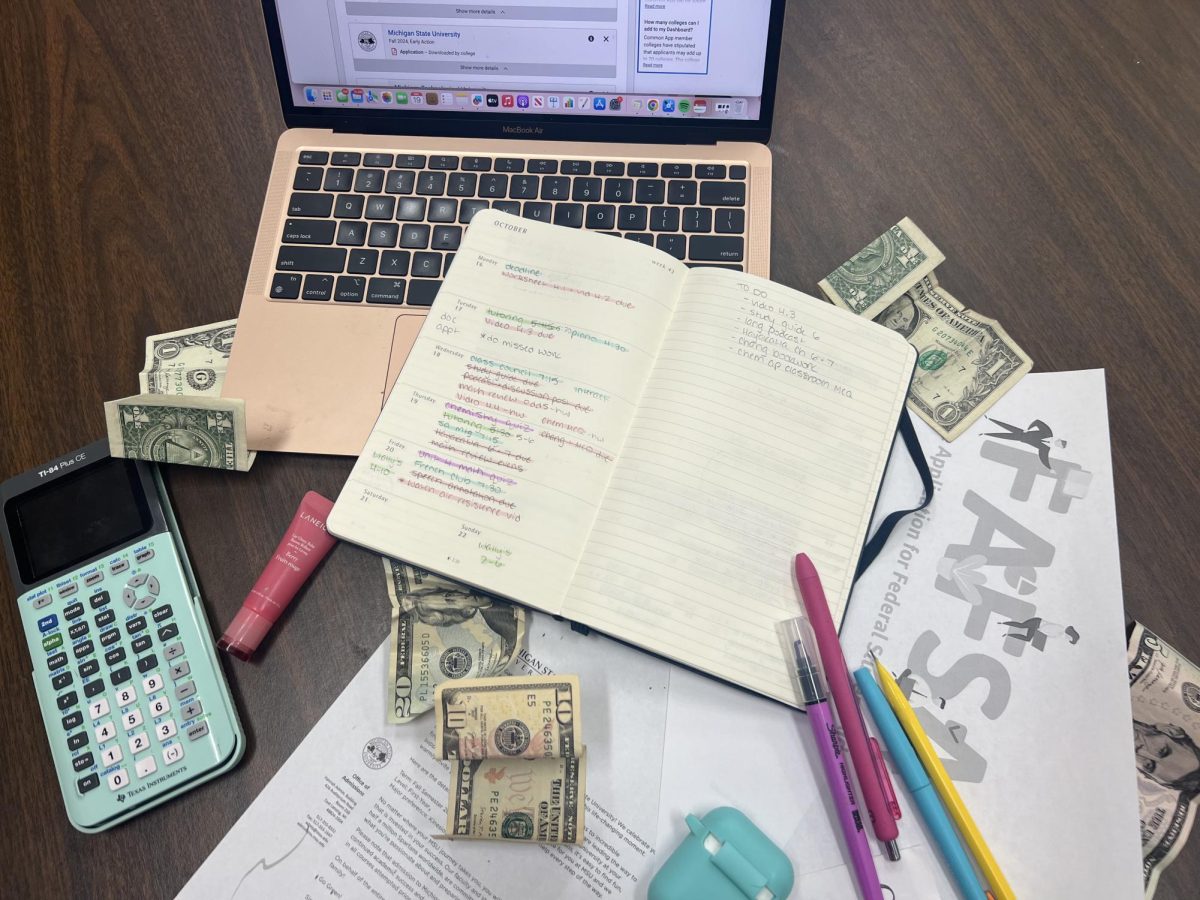Essays, portals, fees, tours; the end of junior year to the beginning of senior year is filled with one of a high school student’s biggest stressors: college applications. College applications, which are already a highly competitive process, are often seen as one of the most critical steps toward an individual’s future.
At Grosse Pointe South, the counselors emphasize the importance of figuring out your path beginning in mid to late junior year. There are numerous resources available, including junior and senior meetings, brochures, surveys, counselors and admission officers from numerous colleges. Counselor Nicholas Bernbeck is one of the many resources that are available for students making that transition.
“The hardest part about college applications is how much more complicated the process has become,” Bernbeck said. “You complete the application, the transcript comes from your counselor, letters [of recommendation] come from teachers, you submit test scores, a lot is going on.”
The whole college application process is miscellaneous, there are a lot of aspects and fees that might not be apparent at the beginning of the application process. One of the most unconsidered fees when applying to colleges and universities is simply the cost to apply. Jack Slawson ’24 took the SAT twice outside of the one taken at school and applied to eight different schools, six of which were out of state colleges.
“I had to pay for both of my SAT tests, one where I had to travel all the way to Ohio to get to the nearest testing site,” Slawson said. “I sent my SAT scores to every school I applied to.”
Along with college applications, multiple different applications come along with it. One of the most debated applications is whether or not you should apply to the Free Application for Federal Student Aid (FAFSA).
“Everyone should apply to FAFSA, I know it’s a frustrating process that takes a while, but there still is the possibility of getting money regardless of how well-off your family is,” Bernbeck said.
While the college application process looks similar for most students, students like Middlebury committed swimmer Ben Bryan ’24 take a different approach. Similar to other students, Bryan toured a lot of colleges, but his process was a little different. He had about 40 coaches from different colleges reach out regarding continuing his athletic career.
“For Middlebury, the athletic process wasn’t much different than the normal application process. I reached out to the coach initially when I had an interest,” Bryan said. “To even go on an official visit I had to submit my transcript, test scores and basically everything that was on my application for a pre-read.”
When applying before Nov. 1, it is crucial to be aware of the difference between early decision and early action. Early action is a more common process where students receive an early response to their application but do not have to commit to the college until the normal reply date of May 1. Middlebury, an early decision school, requires students who apply early to attend the school if admitted.
“I applied early decision because I was confident in my choice to attend Middlebury,” Bryan said. “Applying with a binding decision was a huge relief and a lot of stress off my shoulders, I know where I am going for the next four years before many people have even started to apply.”










































































